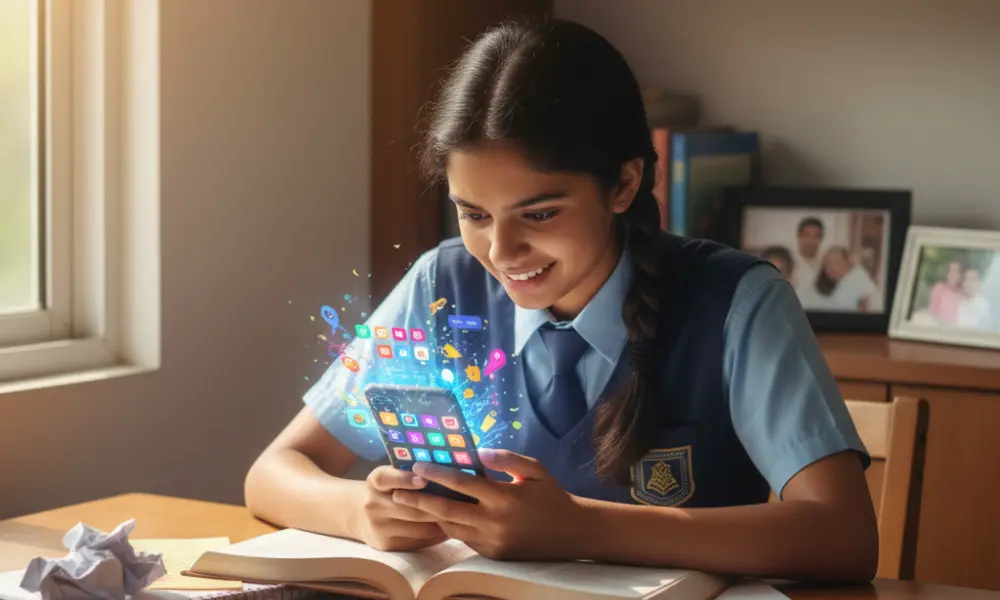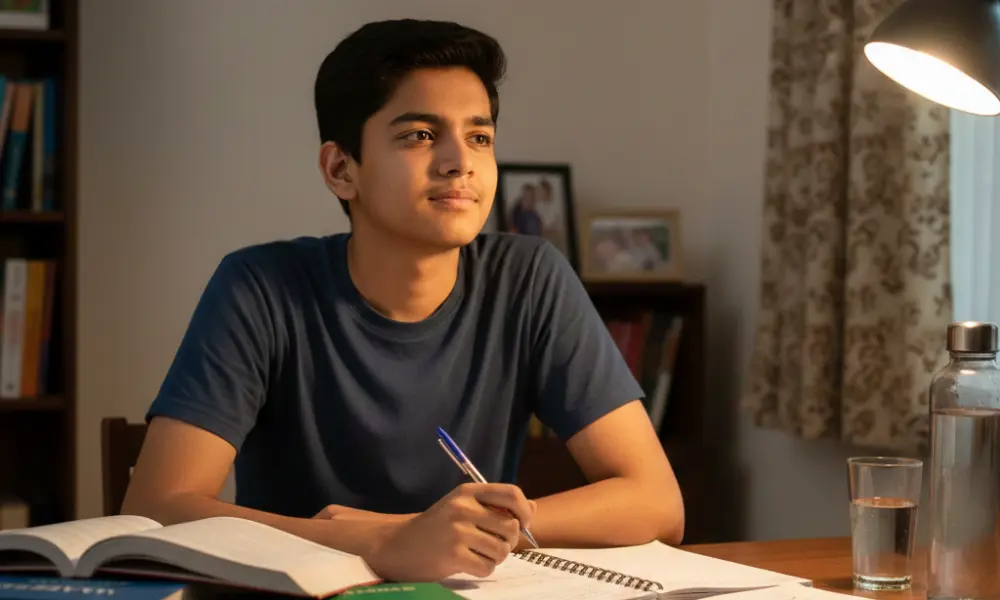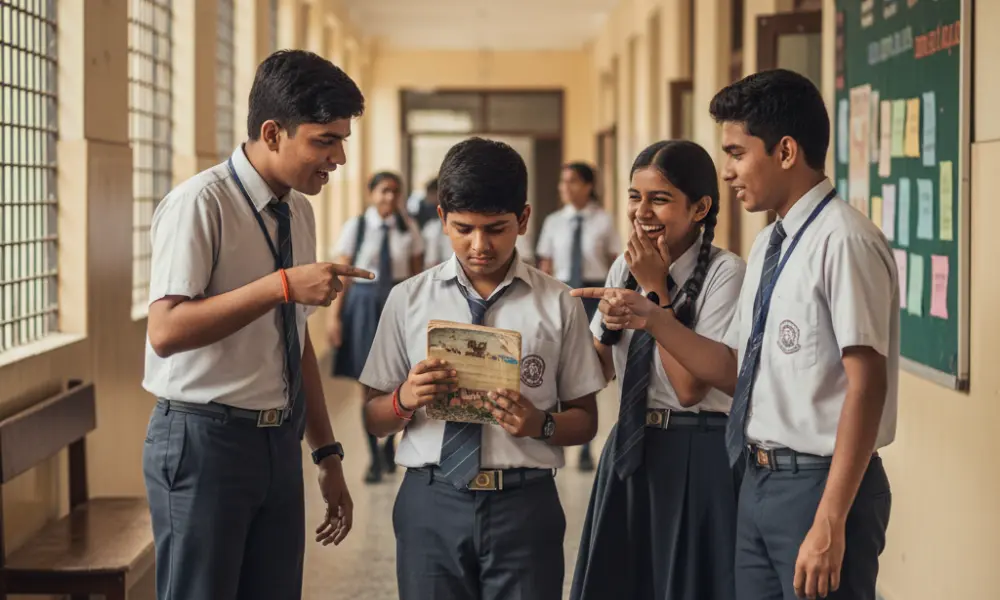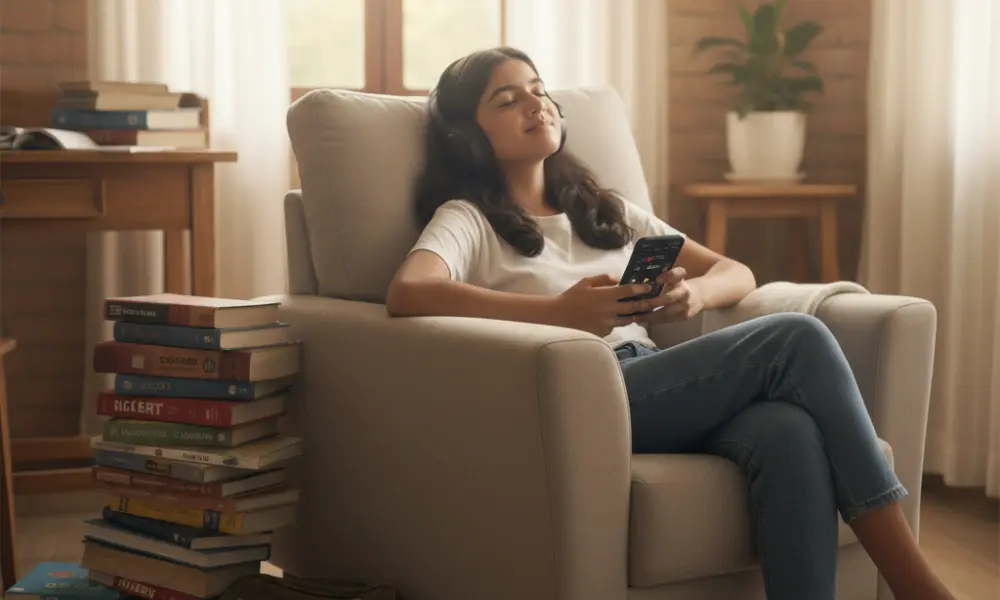Digital Distractions: How to Manage Gadgets During Study Hours
Practical strategies for students and parents to handle gadgets wisely during CBSE study time
This blog explores how gadgets disrupt focus and provides practical strategies for CBSE students and parents to manage phones, laptops, and gaming during study hours. It explains why distractions are hard to avoid, how to balance educational apps, and offers tools and self-discipline methods to create digital balance.

How digital distractions affect focus
For CBSE students preparing for board exams, focus is one of the most valuable resources. Yet, smartphones, laptops, and gaming devices constantly compete for attention. Studies show that even a short glance at a notification can disrupt concentration and lower productivity. Once focus is broken, it may take 15–20 minutes to return to the same level of concentration. This constant switching between study and gadgets not only wastes time but also increases stress, especially during exam season.
Why gadgets are hard to avoid
Unlike previous generations, today’s students depend heavily on digital tools for both study and leisure. NCERT solutions, online doubt clearing, and digital flashcards are accessed through the same devices that host social media, messaging apps, and video games. This overlap makes it difficult to separate learning from distractions. The addictive design of apps, with endless notifications and instant gratification, further complicates the problem. Recognizing this challenge is the first step toward addressing it.
Balancing learning apps with distractions
Not all screen time is harmful. Educational apps, including Edzy, can make revision engaging and interactive. The challenge lies in drawing a line between productive and unproductive use. Students should consciously allocate fixed time slots for digital learning while keeping non-academic usage under control. Parents can help by encouraging children to use gadgets only for study during certain hours, while entertainment apps are restricted to breaks or post-study relaxation.
Tips to create a distraction free study zone
The study environment plays a big role in concentration. Here are some simple strategies:
Keep phones out of reach or in another room during deep study sessions
Use a dedicated study table free of unnecessary gadgets
Turn off non-essential notifications before starting revision
Maintain a consistent routine with specific study hours
Incorporate short breaks every 40–50 minutes to refresh
These steps reduce the temptation to multitask and help students stay engaged with their subjects.
Apps that block distractions
Several apps are designed to limit digital distractions while studying. Popular tools include:
Forest – Encourages focus by growing a virtual tree while the student stays off the phone
Stay Focused – Blocks specific apps and websites during study hours
Cold Turkey – Helps block distractions on laptops by restricting sites and apps
Focus To-Do – Combines the Pomodoro technique with task management
These apps train students to resist distractions gradually while making focus more rewarding.
Parental controls and monitoring tools
Parents often wonder how much involvement is appropriate in their child’s digital life. Parental control tools can set healthy boundaries without micromanaging. Features such as screen-time limits, restricted access to certain apps during study hours, and usage reports help parents guide children constructively. However, open communication is essential — controls should be paired with discussions about why balance is important, rather than imposed silently.
Student self discipline strategies
Ultimately, self-discipline is the strongest weapon against digital distractions. Some effective strategies for students include:
Practicing the Pomodoro method: 25 minutes of study followed by a 5-minute break
Setting daily study goals and rewarding themselves after achieving them
Using physical notebooks instead of digital notes for certain subjects
Training themselves to delay gratification — checking messages only after completing a task
Building self-control is a gradual process, but small steps lead to long-term habits that improve focus not just for exams, but for life beyond school.
Final advice for digital balance
Digital distractions are a modern challenge, but they can be managed with awareness, boundaries, and discipline. Students should see gadgets as tools rather than enemies. Parents can act as partners in this process by offering encouragement instead of criticism. With clear routines, supportive tools, and balanced screen use, CBSE students can make the most of their study hours. Platforms like Edzy reinforce this balance by turning digital devices into allies for learning through gamified quizzes, revision notes, and progress tracking.
The key is not to avoid gadgets entirely, but to use them wisely so that technology becomes a bridge to success, not a barrier.
By building healthy digital habits now, students prepare themselves not only for CBSE exams but also for the demands of a tech-driven future.
Suggested blogs

How CBSE Class 10 Students Can Manage Stress as Board Exams Approach
Effective strategies for managing exam stress in CBSE Class 10 students.

Managing Peer Pressure in School – A Student’s Survival Guide
Strategies for students to navigate peer pressure with confidence.

How Music Affects Study Focus – Science-Backed Insights for Students
Discover how music can enhance your study sessions and improve focus.

How Journaling Can Improve Academic Performance and Mental Clarity
Unlocking the power of journaling for better learning and mental health.
